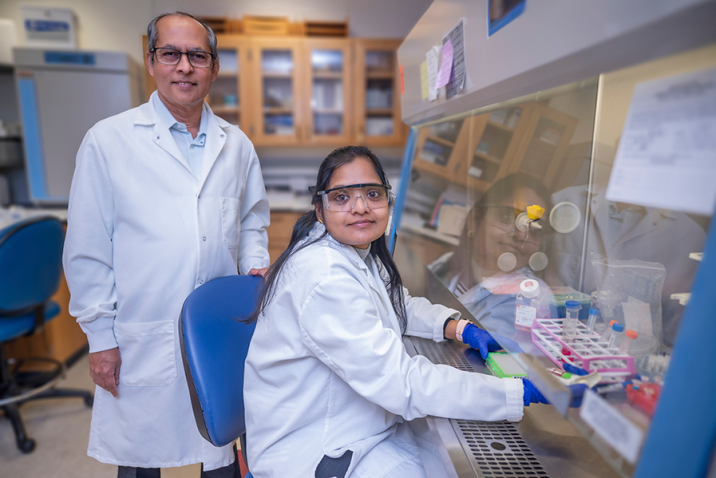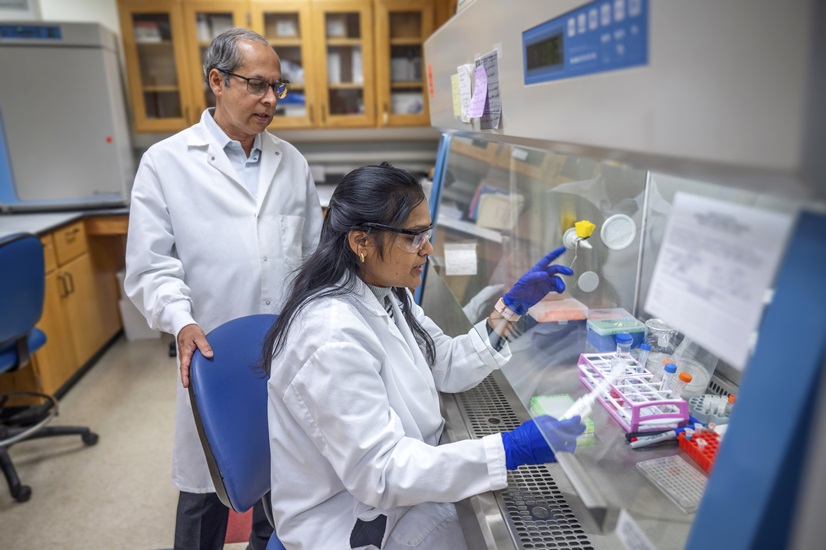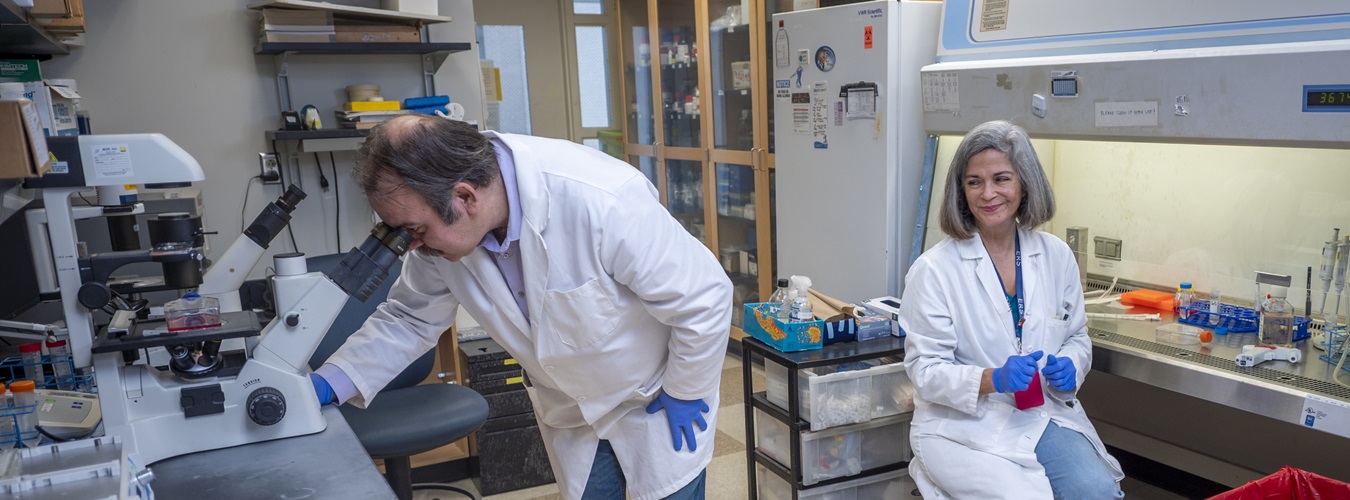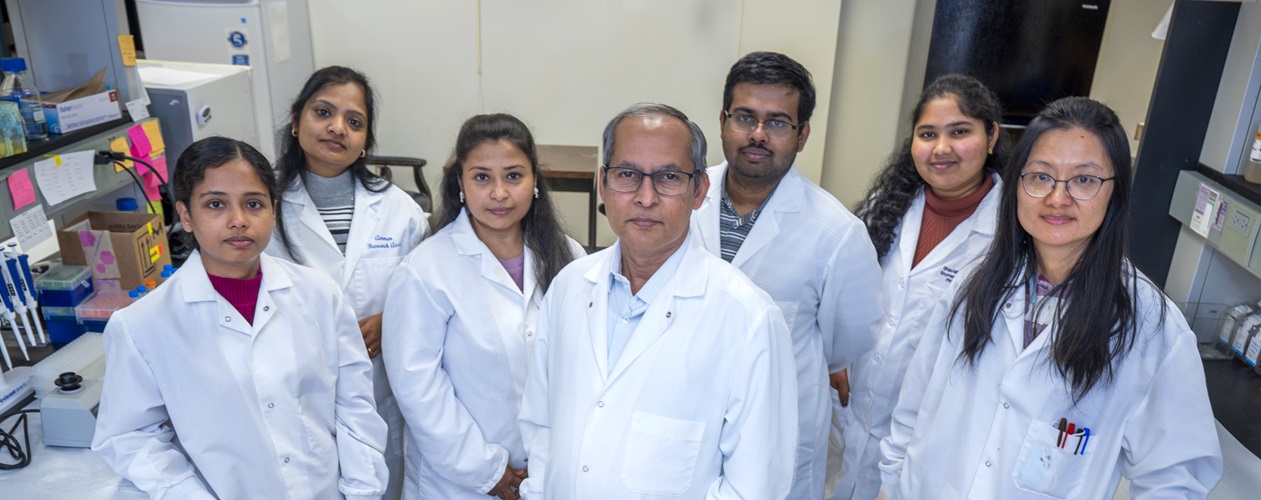
Department of Pharmacology & Toxicology
Originally developed to discover how remedies and poisons effected man, modern pharmacology lays the groundwork to discover and develop future generations of therapeutics. Pharmacology's scope has broadened to include: computer-assisted drug design; genetic screens; protein engineering; and new drug-delivery vehicles like viruses and artificial cells.
The department's history of accomplishments include the discovery of the adrenergic receptor subtypes-alpha and beta which led to developing several drugs used to treat cardiovascular disease. Cardiovascular and neuroscience studies are the focuses of the department's research programs.
Raymond P. Ahlquist, working in this Department, first defined α and β adrenergic receptors in 1948. This discovery eventually led to the development of “β blocker” drugs for hypertension and heart disease.
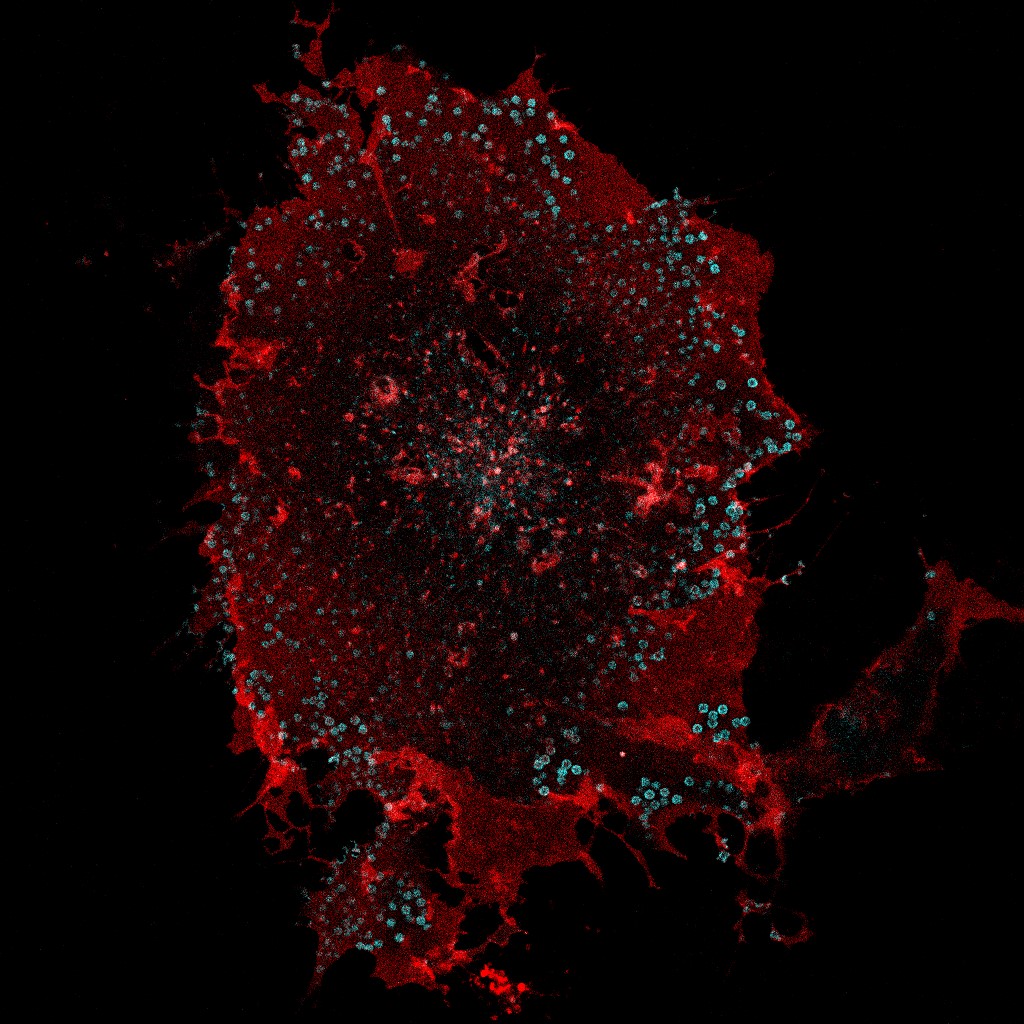
β adrenergic receptors (blue) clustered into artificial microdomains on the surface of a living COS7 cell (red).
Contact Us
Department of Pharmacology & Toxicology
Health Sciences Campus
Carl T. Sanders R & E Building
706-721-2345
RM 3530
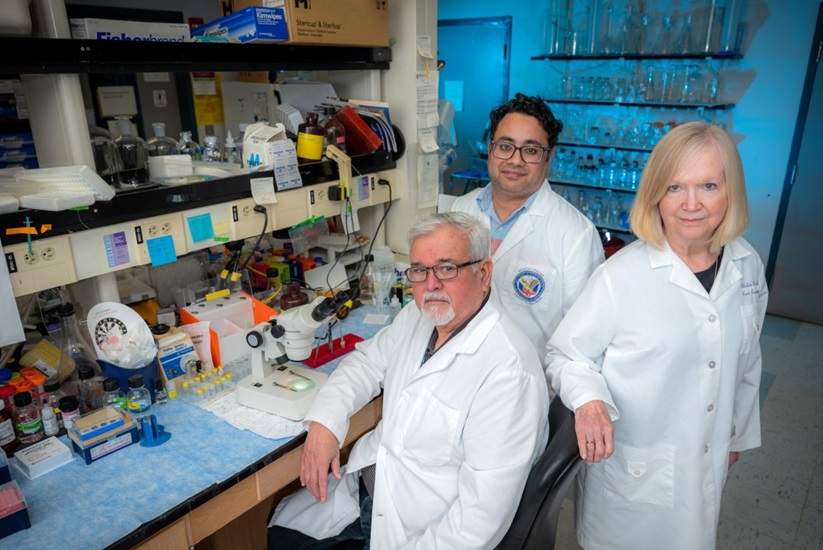
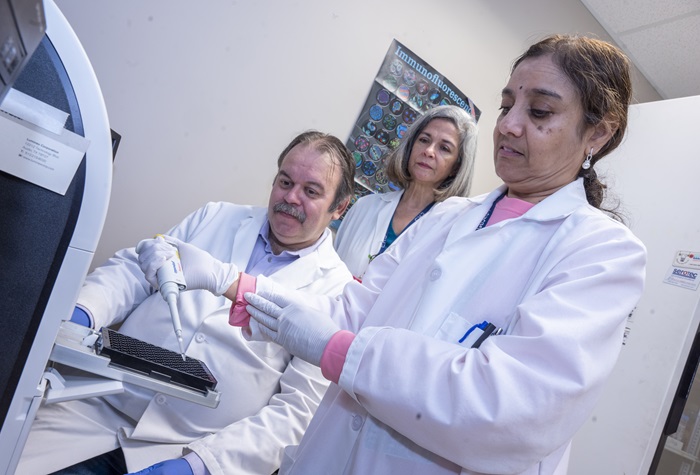
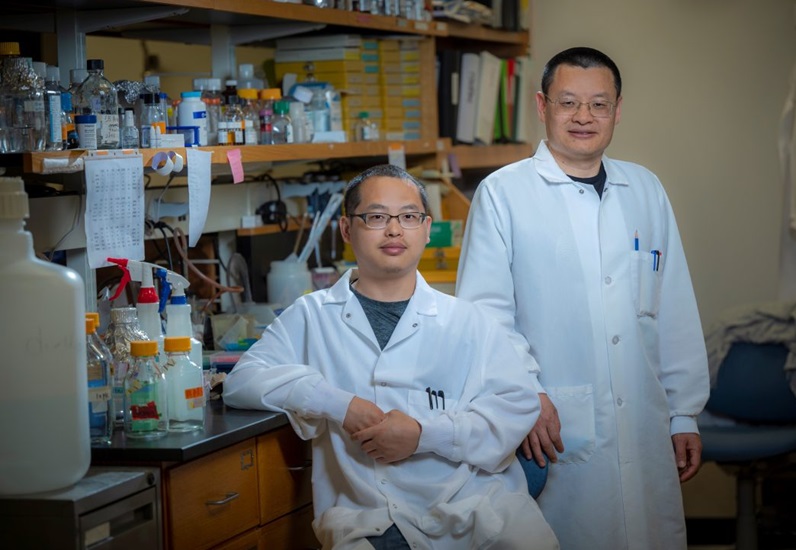
Department Highlights
- Research in the areas of cardiac, vascular, and pulmonary disease, schizophrenia, learning and memory, neuroprotection and drug abuse.
- Experimental approaches range from the gene to whole animal.
Pharmacology & Toxicology News
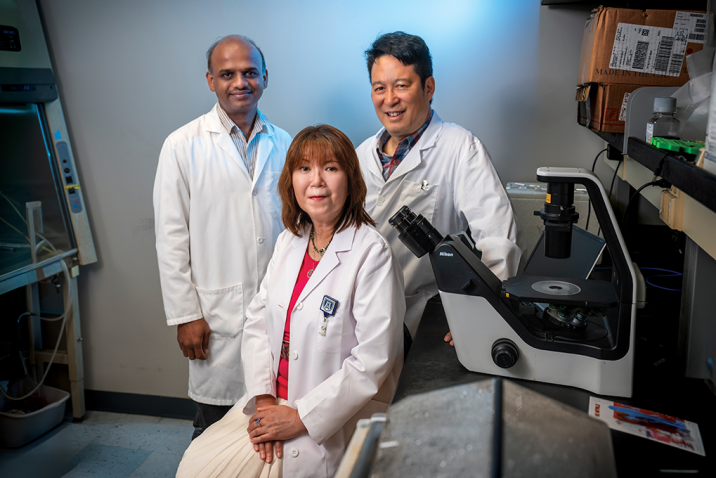
MCG researchers uncover how exercise reboots vascular health in diabetes
MCG researchers uncover how exercise reboots vascular health in diabetes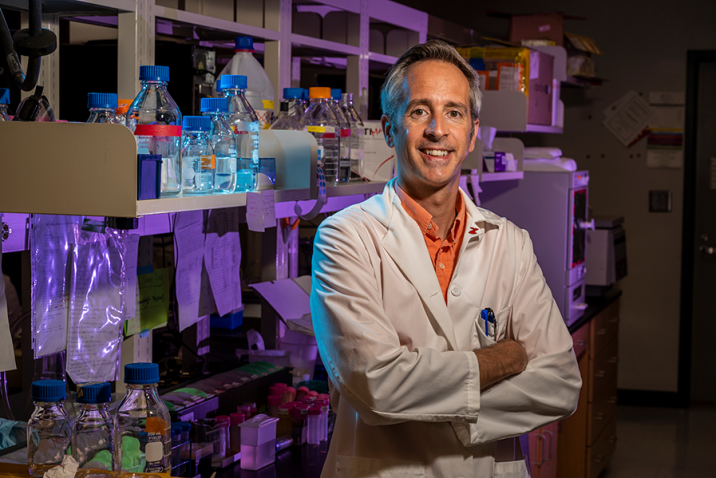
MCG researchers publish first explanation of HIV, hypertension correlation
MCG researchers publish first explanation of HIV, hypertension correlation